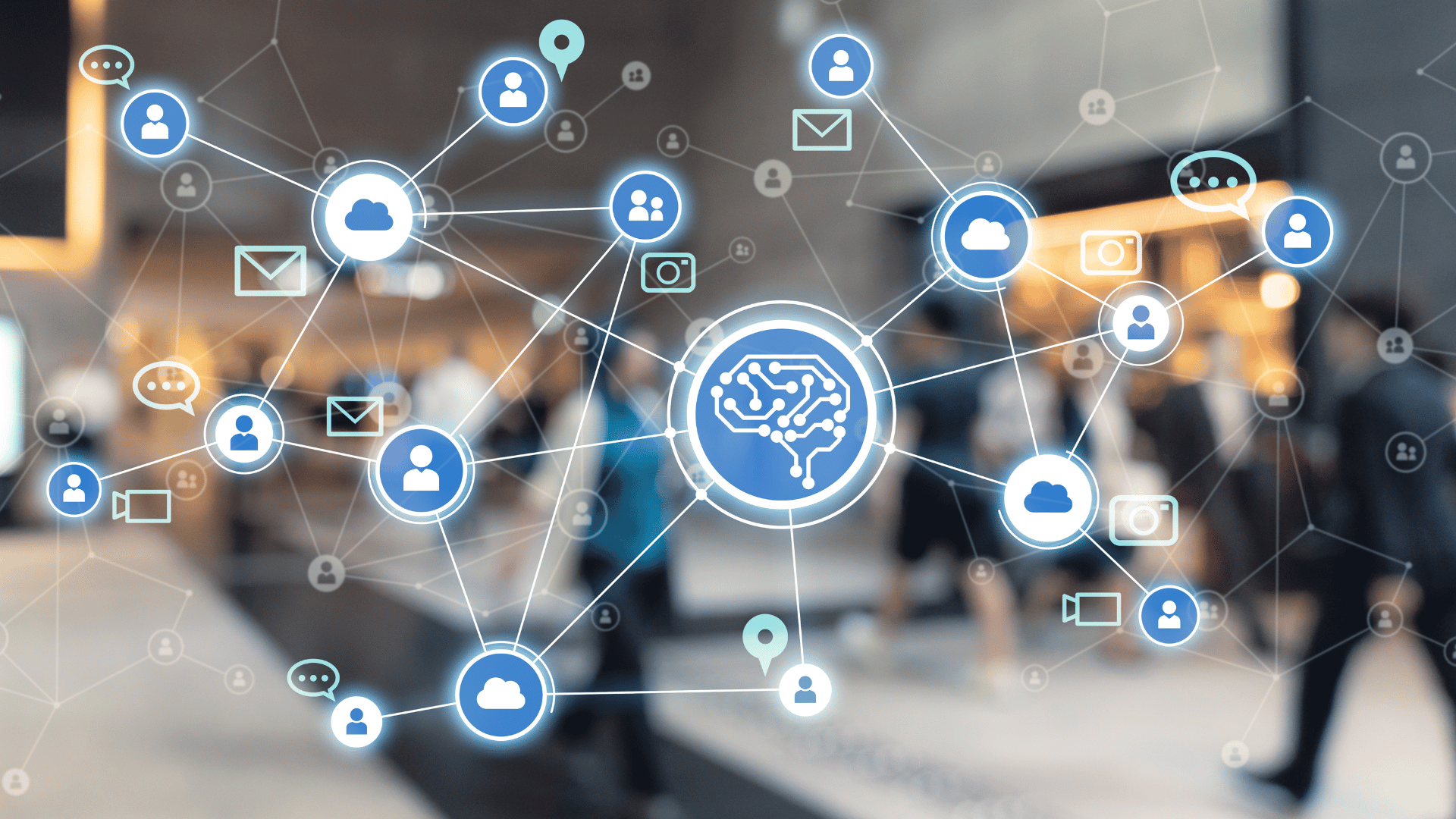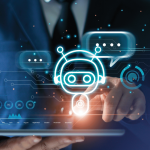Introducing the fascinating world of AI implementation in HRMS, where technology meets human resources. In this section, we’ll kickstart our journey by exploring the definition and importance of HRMS, paving the way for a deeper understanding of how AI integration is revolutionizing HR practices. Get ready to uncover groundbreaking insights and discover the potential of AI in transforming the HR landscape.
challenges Faced When implementing AI in HRMS
Implementing AI in HRMS comes with its fair share of adoption challenges. From lack of knowledge and expertise to data privacy and security concerns, cost of implementation, resistance to change, and ethical and legal considerations, there are several barriers to overcome. In this section, we will delve into these adoption challenges, shedding light on the intricacies and potential solutions for successfully incorporating AI into HR management systems.
#1 Lack of knowledge and expertise
AI integration in HRMS faces the challenge of insufficient knowledge. To overcome this, organizations must invest in education and training programs. This will provide employees with the skills and knowledge they need to successfully implement AI.
Organizations can also explore partnerships with AI experts or consultants. They can use their expertise to guide them through the adoption process.
By focusing on enhancing knowledge and expertise, organizations can overcome the challenge of limited understanding. This will enable them to reap the advantages of AI in their HRMS systems. Such as improved accuracy, efficiency, and decision-making capabilities.
#2 Data privacy and security concerns
Ensuring the safety of confidential employee data is vital for building trust and following regulations. Robust security measures are essential for preventing unapproved access and data breaches. Strict data privacy policies and procedures can help reduce dangers related to AI implementation.
Designing a secure infrastructure that guards employee info can improve overall system security. Regularly inspecting and auditing the AI system can uncover any possible vulnerabilities or risks. Additionally, data encryption while transmission and storage will add an extra layer of protection against unauthorized access.
Notably, the topics of data privacy and security are special and need to be attentively dealt with throughout the process of AI implementation in HRMS. Implementing AI in HRMS may be costly, however, not developing can be a bigger cost.
#3 Cost of implementation
The cost of integrating AI into HRMS involves the money spent on acquiring AI software and hardware. Plus, training employees and maintaining the system. Data migration, customization and ongoing technical support also cost money.
To get an idea of the cost, let’s look at the components:
| Cost Component | Description |
|---|---|
| AI Software | Purchasing or developing AI software tailored to HRMS needs |
| Hardware | Buying servers, storage systems, computing resources |
| Training | Educating employees on AI technologies and how to use them |
| Customization | Customizing the AI system to align with HRMS reqs |
| Data Migration | Transferring existing HR data into the new AI-enabled system |
| Technical Support | Maintaining and troubleshooting the AI implementation |
Plus, there are indirect costs like potential productivity losses during implementation. Integration with existing IT infrastructure and ongoing upgrades or enhancements.
To know the total cost, each organization must do a detailed analysis. This is important to make informed decisions about allocating resources for successful implementation.
#4 Resistance to change
Organizations must handle resistance to change through proactive communication of the benefits and aims of AI in HRMS. Open and clear communication can help reduce employee worries and remove any misunderstandings about AI replacing human jobs. Plus, involving employees in the decision-making and providing proper training and help can ease them into the changes brought by AI.
Moreover, organizations should stress the role of AI as a tool to boost human skills rather than replace them. By showing how AI can automate repetitive tasks, boost decision-making processes, and allow for more strategic work, organizations can get employees to accept the technology.
#5 Ethical and legal considerations
The implementation of AI in HRMS raises ethical and legal considerations that must be thoughtfully considered. This includes making sure AI use is compliant with all applicable laws and regulations, such as those related to data privacy and protection. Data collected by AI systems must be dealt with responsibly, with proper safeguards in place to keep employee info secure.
Furthermore, ethical questions arise when deploying AI in HRMS. AI algorithms should be created to treat all employees equally and without prejudice, avoiding any type of discrimination. It’s key to ensure employees understand how AI is being used and how it may affect them.
Organizations also need to consider the possible impact of AI on job security and employee welfare. While AI can bring many advantages to HRMS, like improved efficiency and accuracy, it might lead to worries about job loss. Companies must find a balance by being proactive about employee concerns, involving them in the adoption process, and offering support for affected employees like training or redeployment programs.
By navigating these ethical and legal considerations surrounding AI implementation in HRMS, organizations can make the most of this technology while protecting the rights and well-being of their employees. They can even train employees in the art of interpretive dance to avoid machines taking over the office!
Practical Solutions for Successful AI Implementation in HRMS
To ensure successful implementation of AI in HRMS, it is crucial to follow best practices. In this section, we will explore key strategies that drive successful AI implementation in HRMS. From investing in AI education and training to prioritizing data privacy and security measures, we will cover essential aspects of maximizing the benefits of AI. Additionally, we’ll discuss the significance of addressing employee concerns, establishing ethical guidelines, and carefully weighing the long-term advantages of AI implementation.
#1 Investing in AI education and training
Organizations must prioritize investing in AI education and training to ensure effective use of AI technology. Providing employees the chance to learn about natural language processing and computer vision, gives them the power to utilize AI tools. This is especially important for tasks such as resume screening, candidate evaluation, and performance management.
Investing in AI education and training fosters a culture of continuous learning. This motivates employees to keep up with emerging trends and technologies related to HRMS. This not only helps their professional growth, but also empowers them to actively optimize HR processes with AI.
Prioritizing investing in AI education and training grants the necessary skills and knowledge to effectively use AI technology. This leads to improved efficiency and performance. Therefore, investing in AI education and training is vital for organizations who want to stay ahead in the rapidly advancing field of AI.
#2 Prioritizing data privacy and security measures
Data privacy and security are crucial for AI in HRMS. Protecting workers’ personal info and data security are key. To do this, companies must add encryption protocols, access controls, and firewalls to stop unauthorized access. It is also necessary to set up policies on how to store and use data, and to conduct audits to find any security issues.
Organizations should use the newest technology that will give the highest level of protection from cyberattacks. This includes advanced encryption algorithms, intrusions detection systems, and software updates to stay ahead of security risks. Also, risk assessments and proper security controls must be done depending on the sensitivity of the data being processed.
Organizations must obey data privacy regulations when implementing AI in HRMS. They have to get explicit consent from individuals before gathering their personal information. Doing privacy impact assessments can help to identify any risks and create strategies to address them.
Data privacy and security measures are important for successful AI implementation in HRMS. Companies need to invest in secure technologies, obey rules, and conduct assessments and audits to protect employee data and make use of AI to improve HR functions.
#3 Weighing the long-term benefits of AI implementation
AI implementation in HRMS offers long-term advantages for organisations. Automation of tasks helps improve accuracy and efficiency. AI can analyse large volumes of data to give valuable insights, leading to better decision-making and strategic planning. Weighing the long-term benefits of AI helps organisations make informed decisions about integrating AI into HRMS.
The benefits of AI implementation in HRMS stretch beyond immediate improvements. Streamlined processes, reduced costs, and increased overall productivity are just some of the advantages. AI algorithms automate repetitive duties, freeing up staff to focus on more strategic and value-added activities. Additionally, AI can spot patterns and trends in employee data, so organisations can optimise their workforce planning and talent acquisition strategies.
Organisations must assess the risks and challenges when weighing the long-term benefits of AI in HRMS. Data privacy and security must comply with regulations such as GDPR. Furthermore, organisations need to calculate the cost of implementation against the expected returns on investment. Finally, ethical considerations should be taken into account.
To get the most out of AI implementation in HRMS, organisations should invest in education and training. This builds knowledge and expertise, ensuring effective utilisation of AI tools. Data privacy is essential throughout the process to build trust. Additionally, involving employees in the adoption process helps address any fears or concerns. Establishing guidelines for ethical considerations ensures AI is used responsibly in HRMS processes.
Weighing the long-term benefits of AI carefully helps organisations make informed decisions that lead to successful integration of AI technology.
#4 Addressing employee concerns and involving them in the adoption process
Organizations must prioritize addressing employee concerns when adopting AI-powered HRMS systems to ensure a successful transition. Open communication channels, comprehensive training, and encouraging feedback are essential for creating an environment conducive to successful implementation.
To address employee concerns effectively, organizations should:
| Establish clear and open lines of communication; |
| Provide comprehensive training and ongoing support; |
| Encourage feedback and participation. |
By involving employees throughout the adoption process, organizations can foster a sense of ownership and promote a positive attitude towards AI implementation. Failing to do so may result in resistance, loss of morale, and missed opportunities for growth and improvement.
Navigating the complexities of ethics and legality when it comes to AI implementations is essential for a smoother transition. Establishing guidelines and staying up-to-date with the latest regulatory changes can help organizations stay competitive in today’s rapidly evolving business landscape.
#5 Establishing guidelines for ethical and legal considerations
Organizations must prioritize establishing clear guidelines for ethical and legal considerations when implementing AI in HRMS. To begin, ethical guidelines should address fairness, transparency, accountability, and bias mitigation. Legal compliance should also be established, with guidelines that align with data privacy and protection of personal information laws. Organizations should regularly review and update their ethical and legal guidelines to keep up with the changing landscape of AI technology.
Communication and transparency should be emphasized, with employees informed about the use of AI and any concerns addressed. Finally, organizations should invest in training programs to equip HR professionals with the knowledge and skills needed to navigate complex ethical scenarios.
Conclusion: The Potential of AI in HRMS and overcoming adoption challenges
The potential of AI in HRMS and overcoming the challenges that come with its adoption can revolutionize the HR industry. This powerful technology can streamline processes, boost decision-making, and provide valuable insights. Through embracing AI, organizations can increase efficiency, reduce costs, and improve employee experiences.
However, there are certain issues that must be addressed, such as data security, ethical concerns, and employee resistance. To overcome these challenges, organizations must put in place secure data protection measures, ensure ethical AI usage, provide training and support to employees, and address any fears or worries they may have. By properly managing these obstacles, organizations can unlock the true potential of AI in HRMS and benefit from its advantages.
The success of AI implementation in HRMS is dependent on addressing data security, ethical considerations, and employee readiness, leading to a smooth transition to an AI-powered HR system. Organizations can pave the way for a more effective and impactful HR function by embracing AI and overcoming its adoption challenges.
How PeopleCentral’s Cloud Solution Solves AI Implementation Challenges?
Implementing AI technology in HR processes can be a challenge for many organizations. However, PeopleCentral’s Cloud Solution offers a comprehensive approach to solve these challenges. Here are the key benefits:
- Streamlined HR Processes: The solution automates routine HR tasks, saving time and reducing errors. It streamlines processes like employee onboarding, time tracking, and leave management.
- Enhanced Employee Experience: Employees can access HR information and perform self-service tasks through a user-friendly interface. The chatbot feature provides instant support and resolves queries promptly.
- Efficient HRMS Integration: PeopleCentral’s Cloud Solution seamlessly integrates with existing HR Management Systems. It syncs data, eliminating manual data entry and ensuring a consistent HRMS.
- Customization and Scalability: The solution can be tailored to the organization’s needs. It undergoes extensive training to give precise answers, integrating with existing workflows and allowing for continuous improvement.
By leveraging PeopleCentral’s Cloud Solution, organizations can overcome AI implementation challenges and unlock the full potential of AI in HR processes.
FAQs
Ques 1. How can a lack of team knowledge and expertise impact AI implementation in HRMS?
Ans 1. A lack of team knowledge and expertise can hinder AI implementation in HRMS as it may be difficult to understand the capabilities of AI and decide which technologies are suitable for the company’s needs. It is crucial to invest in AI education and training courses to empower employees with the necessary skills and knowledge to effectively incorporate AI into HRMS.
Ques 2. How can automating activities through AI improve HRMS processes?
Ans 2. By harnessing the power of AI to automate activities in HRMS, companies can streamline processes and reduce manual effort. AI can handle repetitive tasks, such as data entry or candidate screening, freeing up HR professionals to focus on strategic activities that require human judgement and creativity.
Ques 3. What is the importance of team competence in successful AI adoption in HRMS?
Ans 3. Team competence plays a vital role in successful AI adoption in HRMS. It is crucial to have AI specialists or experts within the team who can guide and support the implementation process. These specialists can ensure proper utilization of AI technology, optimize its performance, and address any issues or challenges that may arise during the adoption phase.
Ques 4. How can a company’s specific requirements impact AI adoption in HRMS?
Ans 4. A company’s specific requirements are essential to consider when adopting AI in HRMS. It is crucial to assess the unique needs and challenges of the company to determine the most appropriate AI solutions. By aligning AI technology with specific requirements, companies can maximize its potential advantages and achieve the desired outcomes.








 5
5


























